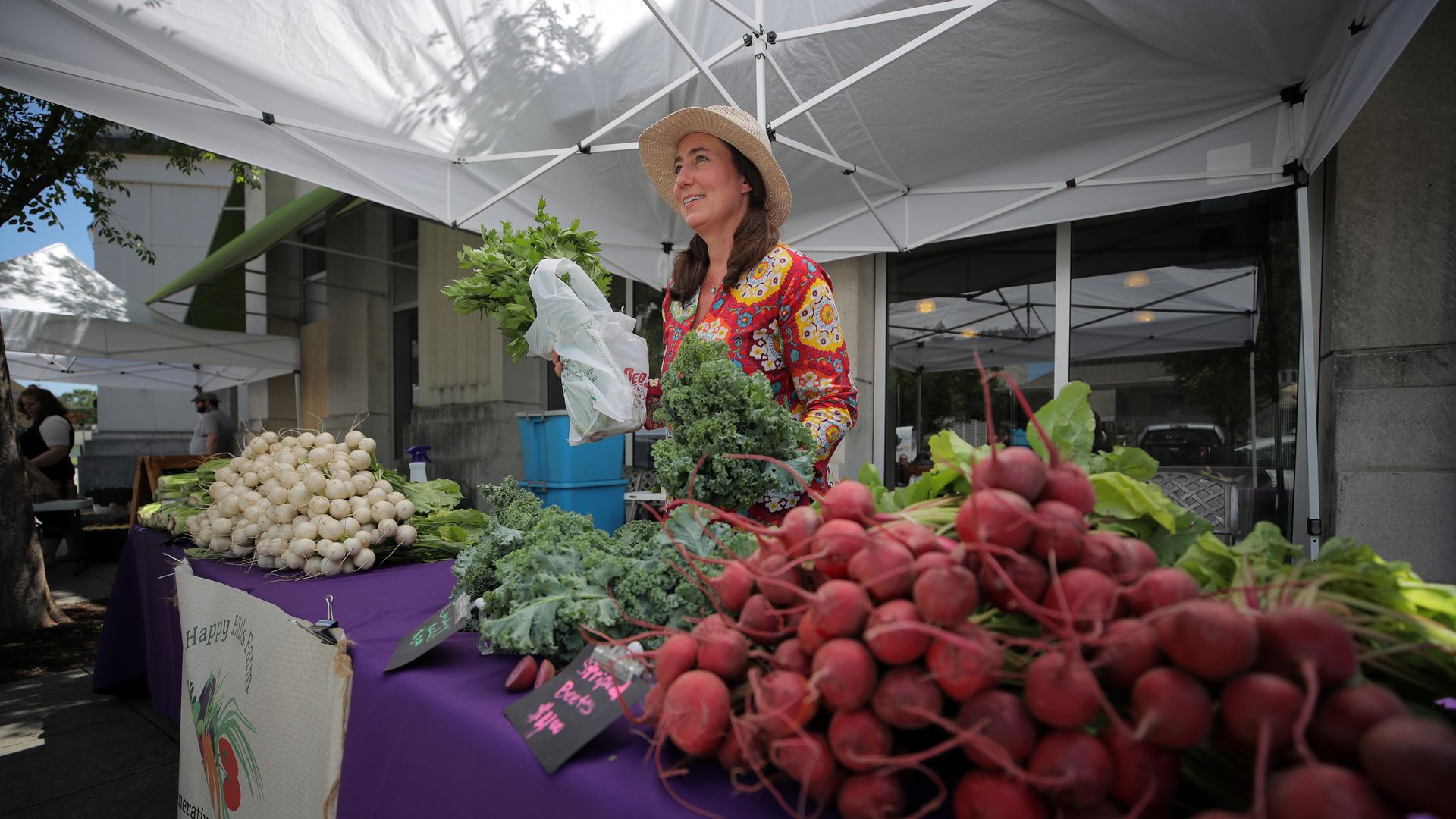Small farmers face "absolute disaster" from coronavirus
Add Axios as your preferred source to
see more of our stories on Google.

Chef and author Dan Barber tells "Axios on HBO" that the economic fallout from the coronavirus will be an "absolute disaster" for small farmers: "It is the tsunami. It's coming."
Why it matters: Barber has been surveying local farmers in New York's Hudson Valley, where he works, and 90% of them anticipate they will go out of business if restaurants are forced to operate at 50% capacity during the height of harvest season this summer.
- If that happens, decades of work and effort could be lost. "The neural connections to this movement, once shattered, do not return," says Barber.
The big picture: Only the government can save local agriculture in the short term, says Barber. But in the longer term, he sees great potential not only for American regional cuisine but also regional supply chains.
- Background: Food prices are low thanks to efficient national and global agricultural supply chains, based on just-in-time delivery and massive economies of scale. But the crisis has shown just how fragile those supply chains can be.
- "Meat facilities around the U.S. have closed," Walmart CEO Doug McMillon tells "Axios on HBO." "There are enough cattle available, but the processing process has broken down."
How it works: A regional food system, based on regional supply chains and regional food processors, would be more expensive and less efficient than the current system, says Barber. But it would also be more robust to pandemics and natural disasters: A single point of failure could not knock out the entire network.
- Better yet, the food produced in such a system would be significantly more delicious and characterful.
- Craft beer is a great example of a regional agricultural industry that is doing much better than the national and international brands.
- "In a regional food system, the value of what's grown on the farm is extended through the process," says Barber. "You actually value the food and the farming all the way through the chain."
The bottom line: There is hope for small farmers — if they can get through the current crisis. But that's a very big if.
